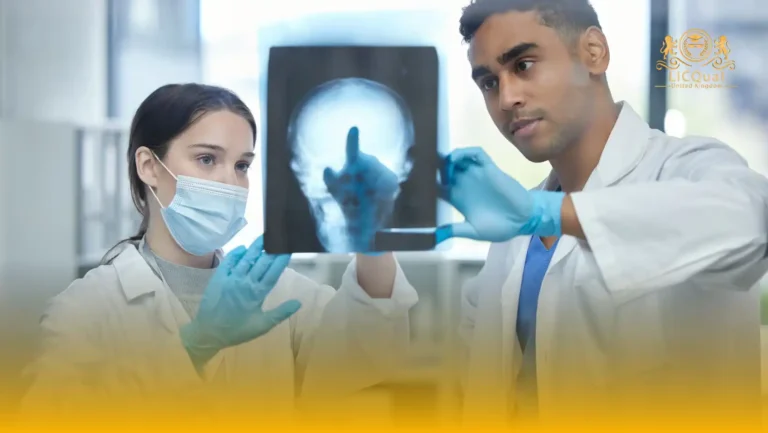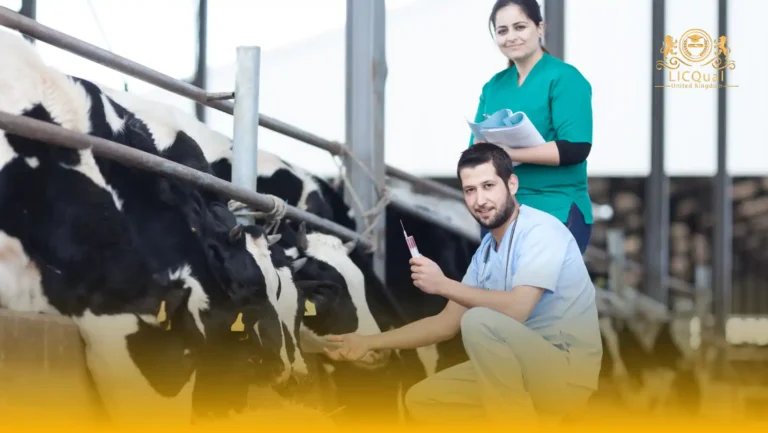The LICQual Level 3 Certificate in QA/QC Piping and Welding Inspector is a globally recognized qualification designed to equip learners with the essential technical skills and knowledge to begin or enhance their careers in quality assurance, quality control, and welding inspection. This comprehensive program is ideal for individuals aiming to work in industries such as oil & gas, petrochemical, power generation, and construction, where piping and welding integrity are critical to operational safety and quality.
This certificate course focuses on the inspection and quality control of piping systems and welded structures. It covers key areas such as piping components, welding processes, welding defects, visual inspection techniques, international codes and standards (such as ASME, API, and ISO), non-destructive testing (NDT), and QA/QC documentation. Learners will develop the ability to interpret engineering drawings, understand fabrication methods, and perform on-site inspections using standard industry procedures.
The LICQual Level 3 Certificate prepares participants for entry-level and intermediate roles such as QA/QC Inspector, Welding Inspector, or Piping Quality Technician. It combines theory with practical applications to ensure learners are job-ready and confident in performing inspection duties in real-world environments.
Whether you are a beginner looking to enter the QA/QC field or a technician seeking formal certification, this course provides a solid foundation for a successful career in piping and welding inspection.
Course Overview
Qualification Title
LICQual Level 3 Certificate in QA/QC Piping and Welding Inspector
Total Units
6
Total Credits
24
GLH
120
Qualification #
LICQ2200552
Qualification Specification
To enroll in the LICQual Level 3 Certificate in QA/QC Piping and Welding Inspector applicants must meet the following criteria:
|
Qualification# |
Unit Title |
Credits |
GLH |
|---|---|---|---|
|
LICQ2200552-1 |
Fundamentals of Quality Assurance and Quality Control |
4 |
20 |
|
LICQ2200552-2 |
Basics of Piping Systems and Components |
4 |
20 |
|
LICQ2200552-3 |
Welding Processes and Techniques |
4 |
20 |
|
LICQ2200552-4 |
Welding Defects and Visual Inspection |
4 |
20 |
|
LICQ2200552-5 |
Introduction to Non-Destructive Testing (NDT) |
4 |
20 |
|
LICQ2200552-6 |
Codes, Standards, and Specifications |
4 |
20 |
By the end of this course, applicants will be able to:
1: Fundamentals of Quality Assurance and Quality Control
By the end of this unit, learners will be able to:
- Define the basic concepts and objectives of quality assurance and quality control.
- Explain the roles and responsibilities of QA/QC inspectors.
- Understand the importance of QA/QC in engineering and industrial projects.
- Identify basic quality procedures, documentation, and compliance requirements.
2: Basics of Piping Systems and Components
By the end of this unit, learners will be able to:
- Identify different types of piping materials and their uses.
- Describe common piping components including fittings, valves, and flanges.
- Interpret simple piping isometric drawings and symbols.
- Understand basic piping fabrication and installation processes.
3: Welding Processes and Techniques
By the end of this unit, learners will be able to:
- Explain various welding processes such as SMAW, GTAW, and GMAW.
- Identify different welding positions and joint types.
- Understand the role of electrodes, consumables, and equipment in welding.
- Recognize the purpose and content of WPS (Welding Procedure Specification).
4: Welding Defects and Visual Inspection
By the end of this unit, learners will be able to:
- Identify common welding defects and their causes.
- Perform basic visual inspection using standard tools.
- Apply relevant acceptance criteria to evaluate weld quality.
- Record and report inspection findings according to standard procedures.
5: Introduction to Non-Destructive Testing (NDT)
By the end of this unit, learners will be able to:
- Explain the purpose and principles of NDT methods.
- Identify basic techniques such as PT, MT, UT, RT, and VT.
- Understand when and how each NDT method is applied.
- Recognize basic safety precautions during NDT activities.
6: Codes, Standards, and Specifications
By the end of this unit, learners will be able to:
- Identify key international standards such as ASME, API, AWS, and ISO.
- Understand the application of standards in inspection and fabrication.
- Interpret relevant code sections for piping and welding work.
- Recognize the importance of regulatory compliance in QA/QC roles.
The LICQual Level 3 Certificate in QA/QC Piping and Welding Inspector is designed for individuals who aspire to begin or enhance their careers in quality assurance, welding inspection, and piping systems across various industries such as oil & gas, construction, petrochemical, power generation, and manufacturing.
This course is ideal for:
- Freshers and entry-level technicians who want to start a career in QA/QC and welding inspection with a globally recognized certification.
- Welders, fabricators, and fitters who wish to upgrade their skills and transition into inspection and quality control roles.
- Diploma or technical certificate holders in mechanical, civil, or industrial engineering disciplines seeking to specialize in piping and welding inspection.
- Supervisors and site inspectors who want formal training in QA/QC practices and international standards such as ASME, API, and ISO.
- Professionals in construction or engineering projects looking to gain foundational knowledge in quality control, documentation, and inspection procedures.
Whether you are starting your journey in the QA/QC field or aiming to validate your skills with a professional qualification, this course provides the practical knowledge and certification needed to work confidently in industrial inspection roles.
Assessment and Verification
All units within this qualification are subject to internal assessment by the approved centre and external verification by LICQual. The qualification follows a criterion-referenced assessment approach, ensuring that learners meet all specified learning outcomes.
To achieve a ‘Pass’ in any unit, learners must provide valid, sufficient, and authentic evidence demonstrating their attainment of all learning outcomes and compliance with the prescribed assessment criteria. The Assessor is responsible for evaluating the evidence and determining whether the learner has successfully met the required standards.
Assessors must maintain a clear and comprehensive audit trail, documenting the basis for their assessment decisions to ensure transparency, consistency, and compliance with quality assurance requirements.







